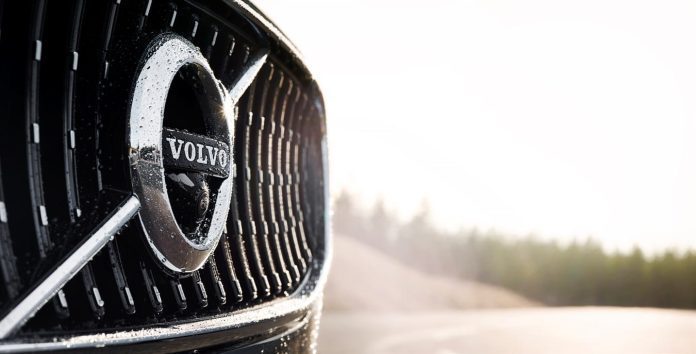The system utilize artificial intelligence and machine learning to check tires, underbody components and vehicle exteriors
Volvo Cars USA announced a new program to equip U.S. retailers with automated vehicle-inspection systems using artificial intelligence and machine learning (ML) technology that aim to improve customer satisfaction and business efficiencies.
Camera-based systems from Israel-based UVeye utilize artificial intelligence and machine learning to check tires, underbody components and vehicle exteriors for defects, missing parts and other safety-related issues.
This automated vehicle inspection process takes seconds to complete and is significantly faster than time-consuming manual inspections, according to Rick Bryant, vice president for sales operations at Volvo Cars USA.
Volvo said that the program is being launched at select retailers on the East Coast. The company ultimately hopes a majority of its more than 280 independent retail locations in the U.S. will install the new automated vehicle-inspection systems.
UVeye and Volvo Cars have collaborated since 2019, when the automaker became a strategic investor in the company through the Volvo Cars Tech Fund. Since then, Volvo Cars also has installed UVeye body-inspection scanners on its assembly lines for quality assurance.
“UVeye’s automated systems will add a new level of credibility to the inspection process for us, for our retailers and for our customers,” Bryant added.
Volvo retailers can install three basic UVeye inspection systems”
-Helios, which is an underbody scanner that detects a wide range of problems from frame damage to oil leakage and corrosion.
-Artemis, a tire system that quickly identifies tire brand, basic specifications, air pressure, tread depth, sidewall damage and even whether a vehicle’s tires are mismatched.
-Atlas, a system that provides 360-degree scans of the exterior and detects damage such as dents, scratches and rust on critical components such as bumpers, mirrors, door locks, grilles and windows.
Volvo Cars said it sees opportunities for all sorts of applications for the new technology, including its use for vehicle trade-in appraisals.
“An automated system can help resolve problems,” Bryant added. “It shows the vehicle’s actual condition. The result is that customers will be able to see flaws such as a rusty tailpipe that they didn’t know about. And they’ll also know the retailer is being upfront with them.”
T-Mobile announces first 5G connected cars in the U.S.
In related news, U.S. carrier T-Mobile introduced Magenta Drive for BMW and the first 5G connected cars in the U.S.
In a release, the telco said that the all-new 2022 BMW iX and i4 come T-Mobile 5G ready with unlimited 5G. The new offering is available for $20 per month to postpaid customers. T-Mobile Magenta Drive for BMW can turn any qualified BMW vehicle into a Wi-Fi hotspot over the operator’s nationwide 5G network.
“In 2019 we lit up the first nationwide 5G network, and now we mark another milestone that builds on our 5G leadership,” said Callie Field, President, T-Mobile Business Group. “In another 5G first, we’ve delivered America’s first 5G connected cars, and we’re honored to do it together with BMW, who entrust their vehicles’ connectivity to T-Mobile.”
T-Mobile said that Magenta Drive for BMW will enable drivers and passengers to have dependable 5G connectivity on America’s highways. T-Mobile’s 5G network covers more than 96 percent of Interstate Highway miles across the country.
T-Mobile’s 5G network covers 310 million people across 1.8 million square miles.

